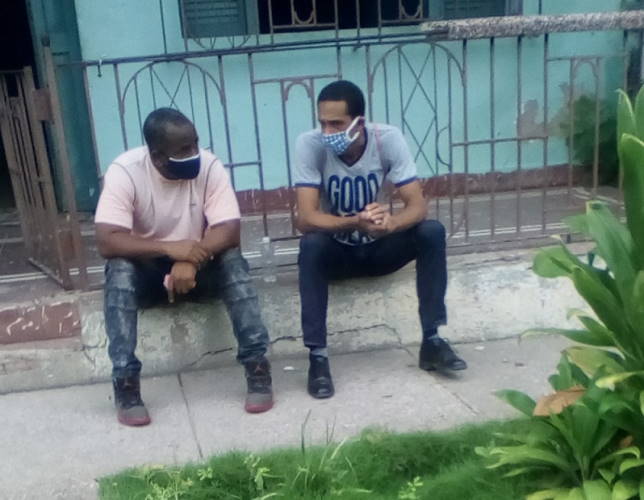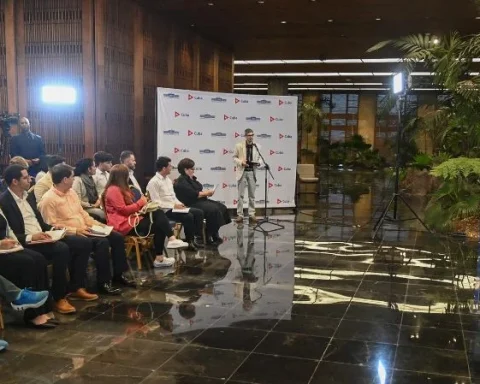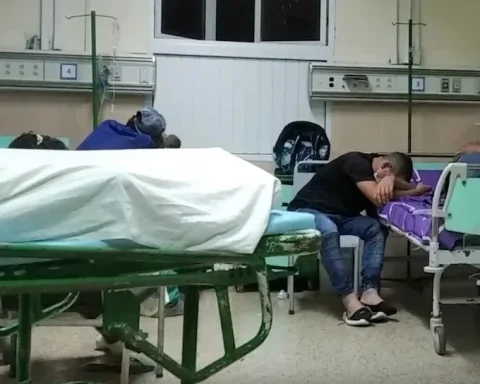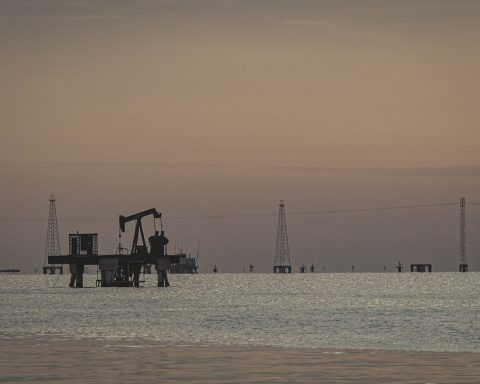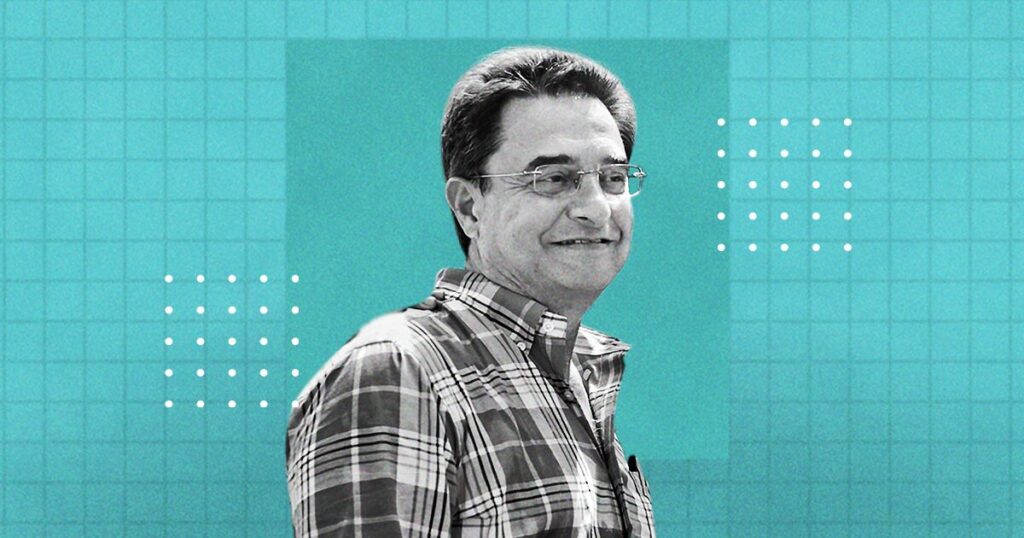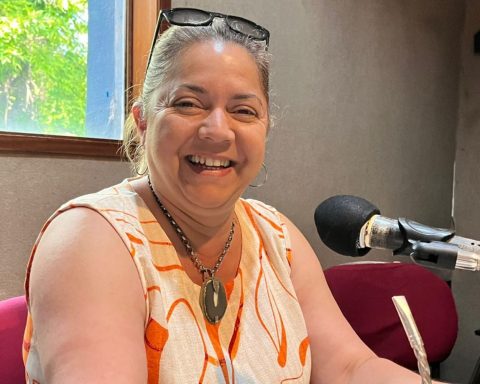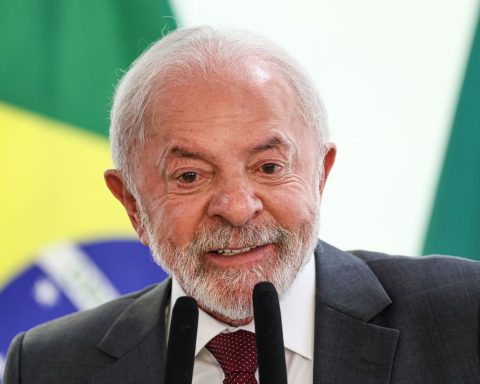MEXICO CITY.- On July 21, the activist and tweeter Leandro Rene Hernandez he was summoned by the political police for an interrogation that culminated in the confiscation of a cell phone and a fine of three thousand pesos. Both measures are protected in Cuba by Decree-Law 370, that criminalizes social media posts. What did Leandro publish to be a victim of the so-called Gag Law?
It all started when the 28-year-old showed on July 13 the face and name of one of the State Security agents who harassed him during interrogations and who had arbitrarily prevented him from leaving his house. This is Benelys Toledo, who introduces herself as Lieutenant Helen to hide her identity.
“She told me a lot that the work she did was supported by the ‘people’, that they appreciated her work,” Leandro wrote on his Facebook profile, referring to the repressor. “So I thought it was pertinent for the public to know her real name and her real function: to harass and repress young people who disagree with the sectarian policies of the regime,” Leandro concluded in his post, where he attached two photos of the lieutenant.
Immediately on his Facebook wall a debate arose about whether he should have exposed Toledo’s identity or not. Acquaintances of Benelys defended her claiming that she was only doing her job and that Leandro had no right to denounce her and put spotlights on her that would provoke hatred; while other users applauded the activist’s decision to reveal the data.
It must be said that denouncing his executioner is not a decision that only Leandro has made. Publishing the face and name of the repressors so that the public knows them has become a common practice for activists, reporters and the media in Cuba in recent years. Justice 11, for example, on its website allocated a segment to evidence the available data on the judges and prosecutors involved in the trials against the July 11 protesters. The legal advice center Cubalex he systematically spreads information about the repressors that his team verifies after the complaints of the victims. Even this same medium has recently released the audiovisual series about the topic.
The names and faces of the Cuban government agents who repress those who dissent or inform must be exposed. To explain why it is legitimate, CubaNet in collaboration with the Cubalex center summarizes it in these four points.
exposed to criminals
The State Security agents denounced by their victims are mostly responsible for crimes such as “threats”, “abuse of authority”, “illegal deprivation of liberty”, “crimes against the free expression of thought”, “against the rights of assembly , demonstration, association, complaint and petition” and “crimes against the right to equality”. They are all scheduled in Penal Code recently approved. Even the norm considers it a crime not to report, under the figure of “breach of the duty to report.” In short, it is a right and an obligation to expose these State agents.
In addition, reporting the crimes they carry out allows everyone to identify the responsible authority and generate a public debate about it.
In theory, this should cause the fact to be investigated, these people punished so that they do not go unpunished and non-repetition guaranteed. But it does not happen because the Cuban State repeatedly fails to comply with its international obligations to protect and guarantee human rights.
They are state agents
State agents are more exposed to scrutiny and criticism than a common subject. They have willingly risked more demanding scrutiny when they decided to fill that position. Therefore, the threshold of protection for your right to privacy and honor is different from that of any other person.
The identity of the agents acting on behalf of and by provision of the state must be public. Unless in some specific case it is necessary to protect that identity above the public interest. The right of access to information establishes it as such. This right is guaranteed both in the National Constitution and in international human rights treaties.
On the other hand, there are speeches specially protected by the right to freedom of expression and among them are those related to public officials. We have the right to know the activities and actions that these agents carry out with the consent of the State itself. It is information of interest and public relevance.
Although the opposite occurs in Cuba, the State has the international obligation to guarantee the mechanisms to protect those who denounce the abuse of authority and not inhibit it. Much less should they punish him as happened with Leandro.
Exposing them is not hate speech
Incitement to hatred or violence is determined by the message that is transmitted, and not by exposing the identity of those who, by virtue of their social function, are obliged to act transparently. A clear example of what incitement to hatred and violence is was Miguel Díaz-Canel’s message on July 11 when he urged the population to attack the protesters.
Furthermore, according to International Covenant on Civil and Political Rights (art.20.2) and the Pact of San José (art.13.5) not all hate speech is prohibited by freedom of expression, but only those that constitute incitement to violence; and with the will and potential to cause violence. It means that depending on the person issuing the speech, against whom it is issued, what is said and the means by which it is done, the imminence of violence will be reasonable or not.
It is necessary to identify them for future sanctions
It is usual that the agents of the State who repress themselves avoid being filmed or photographed. When their victims confront them with a cell phone in hand, they try to hide their faces. When their victims spread the data of their perpetrators, they close their social networks when they know they are discovered. They are aware that what they are doing is wrong and that they may eventually be prosecuted for abuse of power. For this, a file where these cases are documented is essential. Migratory and economic sanctions have currently been applied to several Cuban officials thanks to the Global Magnitski Law. These sanctions could continue to be extended.
Receive information from CubaNet on your cell phone through WhatsApp. Send us a message with the word “CUBA” on the phone +1 (786) 316-2072, You can also subscribe to our electronic newsletter by giving click here.
